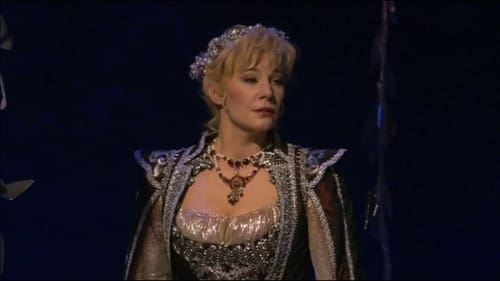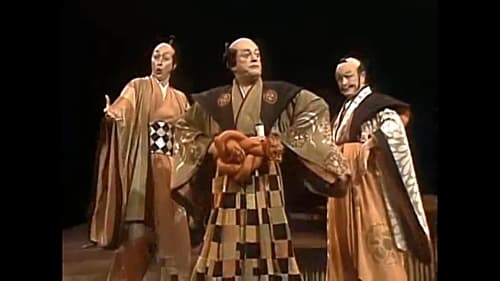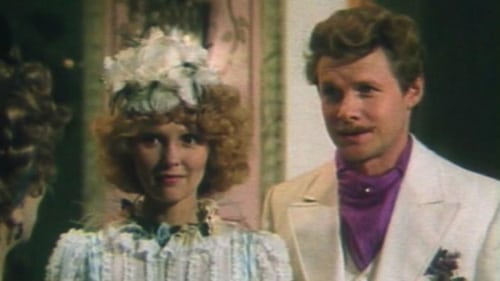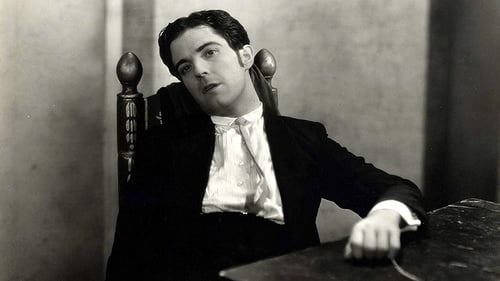Netopýr (1981)
Genre : Music, Comedy
Runtime : 0M
Director : František Filip
Writer : František Filip
Synopsis

This musical comedy based on an opera by Jacques Offenbach incorporates a twist on the classic Greek myth: Orpheus, a music teacher at a girls’ school in the ancient Greek city of Thebes, actually does not miss his wife Eurydice that much – until the gods and Offenbach himself pressure him to retrieve her from Hades.

Eisenstein gets in trouble for shooting a grouse. He is told that he must go to prison for his crime. However, his friend has invited him to an aristocratic ball. Eisenstein, despite being married, wants to go to the ball to meet women. Eisenstein lies to his wife. He tells her that he is going to prison but actually he goes to the ball. His story arises the suspicion of his wife. His wife devises a plot to catch her womanizing husband.

A musical drawing room farce set in Paris in October, 1925. Gilberte, in middle-age, flirts with men but loves her husband Georges, wishing he were more demonstrative. He's negotiating a deal with an American, Eric Thomson, who turns out to be Gilberte's first husband from an annulled and secret stateside marriage. Along with her sister Arlette, Gilberte begs Eric not to tell Georges about the marriage. Meanwhile, a young artist, Charly, pursues Gilberte while Arlette tries to match him with the young Huguette, who loves him. Will Eric play along or try to re-win Gilberte's affection? Can Gilberte play one off against another? And who will manage to kiss whom on the lips?

Performances from Pamela Coburn, Brigitte Fassbaender, Janet Perry, Eberhard Wachter, the Choir und Ballet der Bayerischen Staatsoper, and the Bayerisches Staatsorchester. Rosalinde, wife of Eisenstein, is having an affair with Alfred. Eisenstein is due to begin a prison sentence the next morning, and the prison governor, Frank, is expected to collect him at any moment. However, Eisenstein allows himself to be talked into attending a fancy dress ball by Dr Falke, and when Frank arrives to find Alfred with Rosalinde, he assumes him to be Eisenstein and carts him off to prison.

Zurich Opera House production of Franz Léhar's operetta, with Dagmar Schellenberger, Rodney Gilfry, and Ute Gfrerer in lead roles. Baron Zeta is desperate that the fabulously wealthy widow Hanna Glavari marry a Pontevedrian man so that her fortune remains in the country. He attempts to match her and his handsome attaché, Danilo. It turns out that Danilo and Hanna had had a love affair in years past. Nevertheless, Danilo now refuses to love her because he doesn't want to appear like he is only interested in her money...

In 1890, Gus Sascher joins the Austrian Army and romances the impoverished girl Elsa Hofner. Elsa instead marries the wealthier officer Franz von Renner, in an attempt at social climbing.

A shy young man with a passion for opera has his world turned upside down by a con artist who really does have a heart of gold.

In a mythical Japan, Ko-Ko, a cheap tailor, has been appointed Lord High Executioner and must find someone to execute before the arrival of the ruling Mikado. He lights upon Nanki-Poo, a strolling minstrel who loves the beautiful Yum-Yum. But Yum-Yum is also loved by Ko-Ko, and Nanki-Poo, seeing no hope for his love, considers suicide. Ko-Ko offers to solve both their problems by executing Nanki-Poo, and an agreement is reached whereby Ko-Ko will allow Nanki-Poo to marry Yum-Yum for one month, at the end of which Nanki-Poo will be executed, in time for the arrival of the Mikado. But what Ko-Ko doesn't know is that Nanki-Poo is the son of the Mikado and has run away to avoid a betrothal to an old harridan named Katisha. The arrival of the Mikado brings all the threads of the tale together. This is the Stratford Festival of Canada, directed by Brian Macdonald. This is a filmed version of a stage performance, and the sets are beautifully spare and economical.

Vienna, Austria, late 1870s. After suffering an irreparable misfortune, the Austrian composer Johann Strauss Jr. (1825-99), the Waltz King, falls in love with a ballet dancer, which disappoints the famous operetta singer Marie Geistinger…

This film is the first adaptation of an operetta written by Ukrainian composer Mykola Lysenko. It follows the trials and tribulations of Natalka and Peter (Petro). The sweethearts planned to get married; however, Natalka's father does not approve of the marriage because Petro was not affluent enough to keep Natalka in the manner he thought that she should be kept. Petro goes off to earn the required fortune.

French General Birabeau has been sent to Morocco to root out and destroy the Riffs, a band of Arab rebels, who threaten the safety of the French outpost in the Moroccan desert. Their dashing, daredevil leader is the mysterious "Red Shadow". Margot Bonvalet, a lovely, sassy French girl, is soon to be married at the fort to Birabeau's right-hand man, Captain Fontaine. Birabeau's son Pierre, in reality the Red Shadow, loves Margot, but pretends to be a milksop to preserve his secret identity. Margot tells Pierre that she secretly yearns to be swept into the arms of some bold, dashing sheik, perhaps even the Red Shadow himself. Pierre, as the Red Shadow, kidnaps Margot and declares his love for her.

Kálmán Imre's beloved operetta comes to the screen in this comedy of music, marriage and class set in Budapest and Vienna before the outbreak of the First World War, recorded at the Budapest Opera in 1963.

Ballet for TV by Flemming Flindt and Eugène Ionesco with music by Thomas Koppel played by Savage Rose. First broadcast in 1971. The ballet was first performed by the Danish Royal Ballet, first as a TV show on the Danish public service channel called DR in 1971, then as a performance at the Danish Royal Theatre in 1972. The main part was danced by Vivi Flindt, and Flemming Flindt also starred. The ballet caused quite a stir, partly because of its spectacular nude dancing, but also the catchy music, published both complete on vinyl (which double-lp) and in abbreviated form on vinyl and CD.

Young Austrian Archduke Paul "Gustl" Gustave is in an arranged engagement but his uncle, the emperor, decides to let Gustl carry on a fling with ballet dancer Lisl Gluck.

Ottilie Van Zandt is forced to wed her cousin, despite her love for Richard Wayne, the gardener's son. Richard leaves, vowing to return a wealthy man and eligible suitor for her. He returns to find she has already married and, in turn, marries another girl on impulse. Two generations later, the grandchildren of Ottilie and Richard, who both have inherited their names as well, meet and develop a close friendship that culminates in the romance that their grandparents began but could not consummate years before.

Silva Varescu, a self-sufficient and professionally successful cabaret performer from Budapest, is about to embark on a tour of America. Three of her aristocratic admirers, named Edwin, Feri and Boni, prefer her to stay. Edwin, unaware that his parents have already arranged a marriage for him back home in Vienna, orders a notary to prepare a promissory note of his expected marriage to Silva within ten weeks.

Witty, fun, intoxicating film of Johann Strauss II's popular operetta, based on a stage production from Vienna State Opera; this is a showcase for the entire cast, but most especially Eberhard Wächter as the insufferably boorish Gabriel Eisenstein, and Gundula Janowitz as his long-suffering wife. Open the champagne, have yourself some torte, and enjoy this delectable comedy from Vienna.

A student nun falls in love with a Mexican singer starring in a cafe next door to her convent.
















